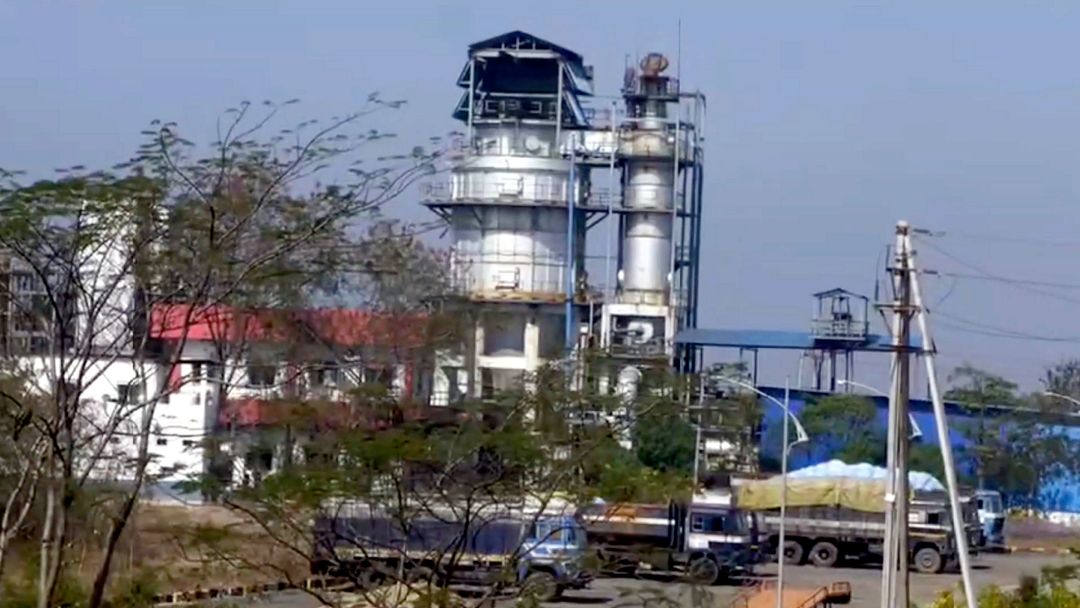
Indore, March 4 – The first phase of the trial incineration of toxic waste linked to the 1984 Bhopal gas tragedy has been successfully completed at a waste disposal facility in Pithampur, Madhya Pradesh. By the end of this phase, a total of 10 tonnes of hazardous waste from the now-defunct Union Carbide plant had been incinerated, an official confirmed.
Incineration Process and Environmental Monitoring
The trial process, which began on February 28, saw 10 tonnes out of 337 tonnes of waste transported from Bhopal to Pithampur's disposal facility being incinerated under close supervision. Indore Division Commissioner Deepak Singh stated that the incineration was initiated on March 1 and successfully completed on March 4.A team from the Madhya Pradesh Pollution Control Board (MPPCB) closely monitored emissions throughout the process. Officials confirmed that air quality and gas emissions remained within permissible limits, ensuring no significant environmental impact.
"The emissions recorded during the first phase of testing are currently under analysis, and the second phase of testing is scheduled to commence on March 4," the MPPCB said in a press statement.
Stringent Air Quality Monitoring
The pollution control board conducted ambient air quality monitoring at five different locations, including three villages near the disposal site. It reported that emissions, including particulate matter (PM), sulfur dioxide, nitrogen oxides, carbon monoxide, hydrogen chloride, hydrogen fluoride, and total organic carbon, were within regulatory limits.MPPCB regional officer Srinivas Dwivedi revealed that during the 75-hour trial, 135 kg of waste was incinerated per hour. For the second phase, the rate is set to increase to 180 kg per hour. Approximately 60 officials and employees participated in the first phase, including 20 personnel from central and state pollution control boards.
Background and Legal Oversight
The trial incineration is being carried out following directives from the Madhya Pradesh High Court, which, in a February 18 ruling, ordered the state government to conduct an initial test incineration of 10 metric tonnes on February 27, adhering to strict safety protocols. The court also mandated that authorities submit reports for all three planned trial phases by March 27.On February 27, the Supreme Court declined to interfere with the Madhya Pradesh HC's directive to transport and incinerate the hazardous waste.
Security Measures Amid Protests
The incineration process has faced public opposition, with protests erupting in response to the transportation of 337 tonnes of hazardous waste from Bhopal to Pithampur on January 2. To prevent disruptions, authorities have heightened security around the Pithampur industrial area, where over 1,250 units employ more than one lakh workers.Composition of the Waste
The toxic waste from the Union Carbide plant includes:- Contaminated soil
- Reactor residues
- Sevin (pesticide) residues
- Naphthol residues
- Semi-processed waste
The Bhopal Gas Tragedy: A Deadly Industrial Disaster
The Bhopal gas tragedy, which occurred on December 2-3, 1984, remains one of the world’s worst industrial disasters. The catastrophic leak of MIC gas from the Union Carbide facility killed at least 5,479 people, leaving thousands more with long-term health complications.The trial incineration of toxic waste represents a critical step in addressing the environmental and public health concerns lingering from the disaster. Authorities will continue the second phase of the disposal process on March 4, with results from all trials expected to be submitted to the court by March 27.
Conclusion
With environmental safety as a priority, air quality monitoring and regulatory compliance remain central to the incineration process. As trials continue, officials aim to safely dispose of the remaining 337 tonnes of hazardous waste, ensuring minimal environmental and public health impact.
Last updated by a enewsx: